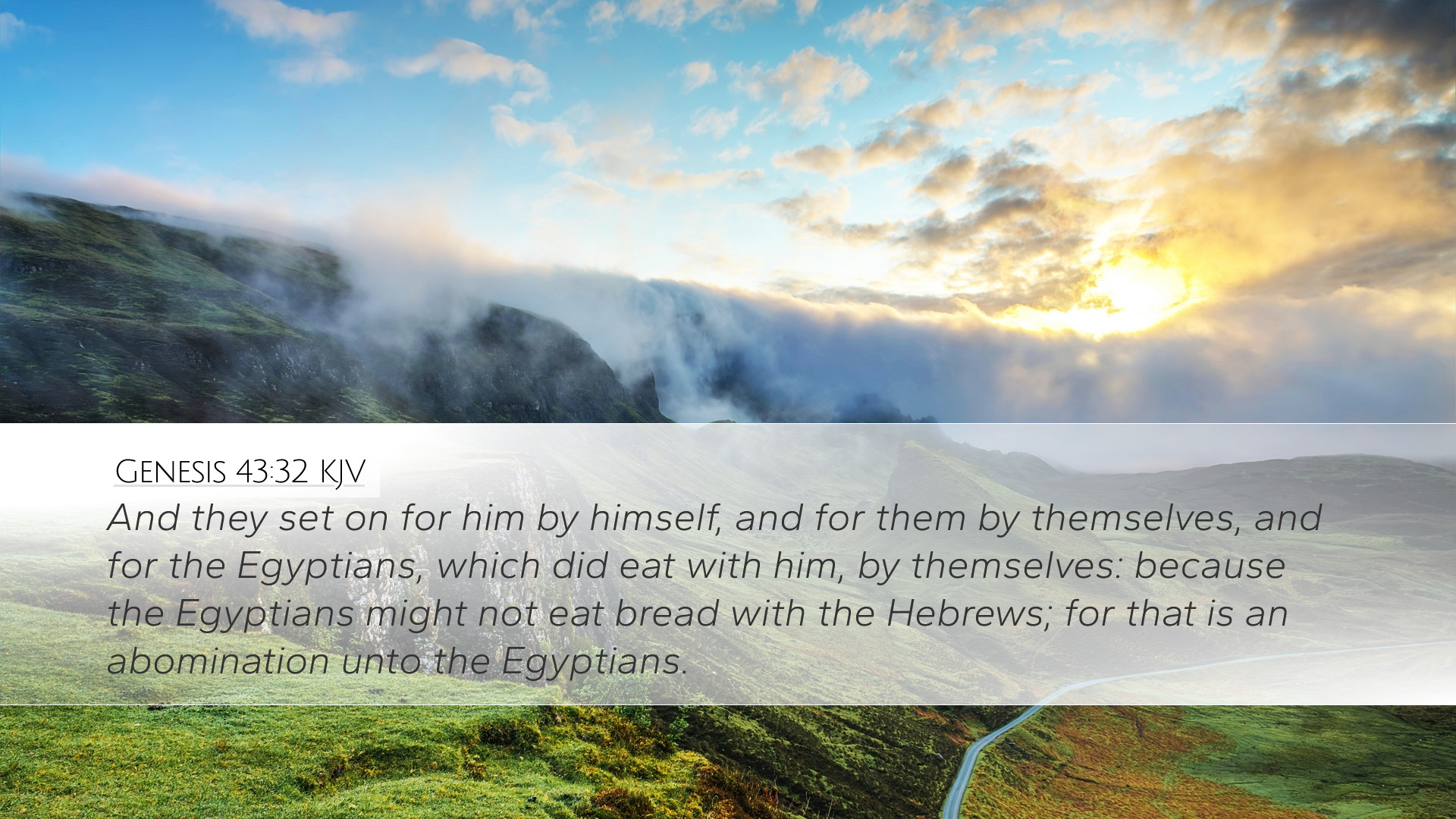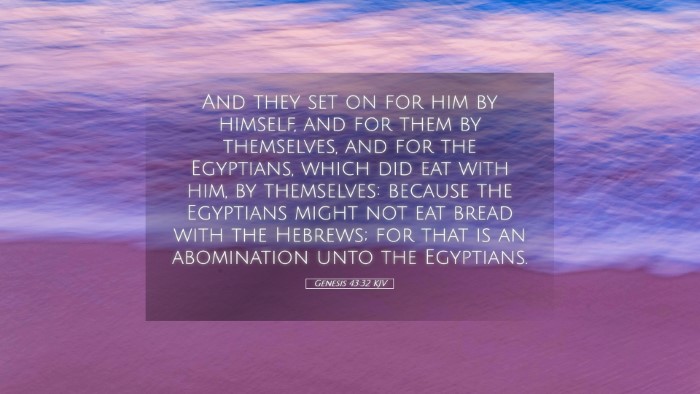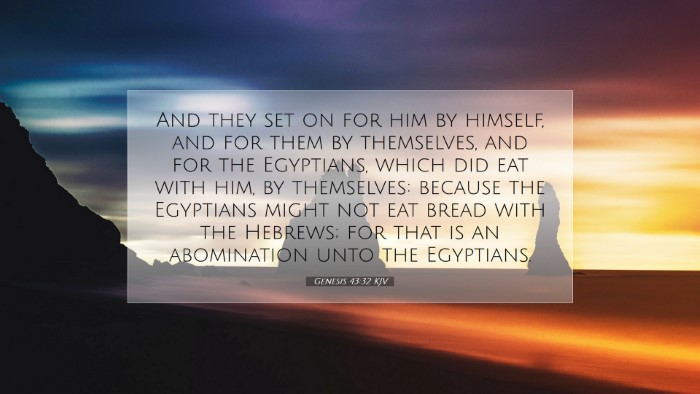Commentary on Genesis 43:32
Verse Context: Genesis 43:32 states, “And they set on for him by himself, and for them by themselves, and for the Egyptians, which did eat with him, by themselves: because the Egyptians might not eat bread with the Hebrews; for that is an abomination unto the Egyptians.” This verse is pivotal as it unfolds the complexities of cultural interactions and the tensions between Joseph's family and the Egyptian society.
Historical and Cultural Background
The historical context of this verse is critical for understanding its implications. The Egyptians viewed the Hebrews with contempt due to long-standing cultural prejudices, rooted in both social hierarchy and dietary laws. The separation of dining arrangements illustrates the deep-seated animosities that can arise from differences in heritage and religion.
Commentary Insights
Matthew Henry: In his exposition, Matthew Henry emphasizes the social ramifications of eating together, which in ancient cultures was integral to fellowship and acceptance. The act of setting Joseph apart was indicative of both his elevated status and the ongoing alienation of his family. Henry points to this separation as not merely a reflection of Joseph’s high position but also a commentary on the sinful prejudice inherent in such divisions.
Albert Barnes: Albert Barnes provides a detailed look at the implications of separate dining. He notes how the Egyptians’ disdain for Hebrews not only reflects cultural norms but also reveals the complexities of Joseph’s identity—torn between two worlds. Barnes highlights that Joseph’s actions were not just about personal preference but were deeply entwined with societal customs. He argues that Joseph's wisdom is discernible in how he navigates these chasms, thus ensuring a peaceful coexistence while maintaining his heritage.
Adam Clarke: Adam Clarke delves into the significance of separation in dining practices. He points out that the phrase “for that is an abomination unto the Egyptians” serves to underscore not just dietary laws but the spiritual ramifications of association. Clarke asserts that this distinction showcases Joseph’s position as not only a leader but also as one who is aware of and respects the sensibilities of the Egyptian culture while managing his familial ties.
Theological Implications
This verse invites an examination of how cultural practices can influence family dynamics and interpersonal relationships. The separation of the tables points towards the broader theme of reconciliation and the need for bridge-building across divides. From a theological perspective, it invites pastors and scholars to reflect on God’s providence in bringing estranged members together and the importance of fostering understanding within diversity.
Practical Applications
- Understanding Prejudice: This verse can serve as a catalyst for discussions around prejudice and its manifestations in contemporary society. It encourages leaders to examine their own biases and fosters an environment of inclusivity.
- Cultural Sensitivity: The actions of Joseph reveal the necessity for cultural awareness. Understanding the customs of different communities can enhance communication and cooperation a vital aspect in ministry and outreach.
- The Role of Identity: Joseph’s dual identity speaks to modern believers who navigate multiple cultural influences. Pastors can utilize this narrative to address identity struggles within their congregations.
Conclusion
Genesis 43:32 serves as a profound reflection on the complexities of identity, culture, and relationships. Insights from respected commentators underscore the need for self-awareness and social responsibility. For pastors, theologians, and students, this narrative enriches understanding of how God utilizes complex human experiences for His purposes, inviting believers to engage with the world through a lens of grace, wisdom, and reconciliation.


